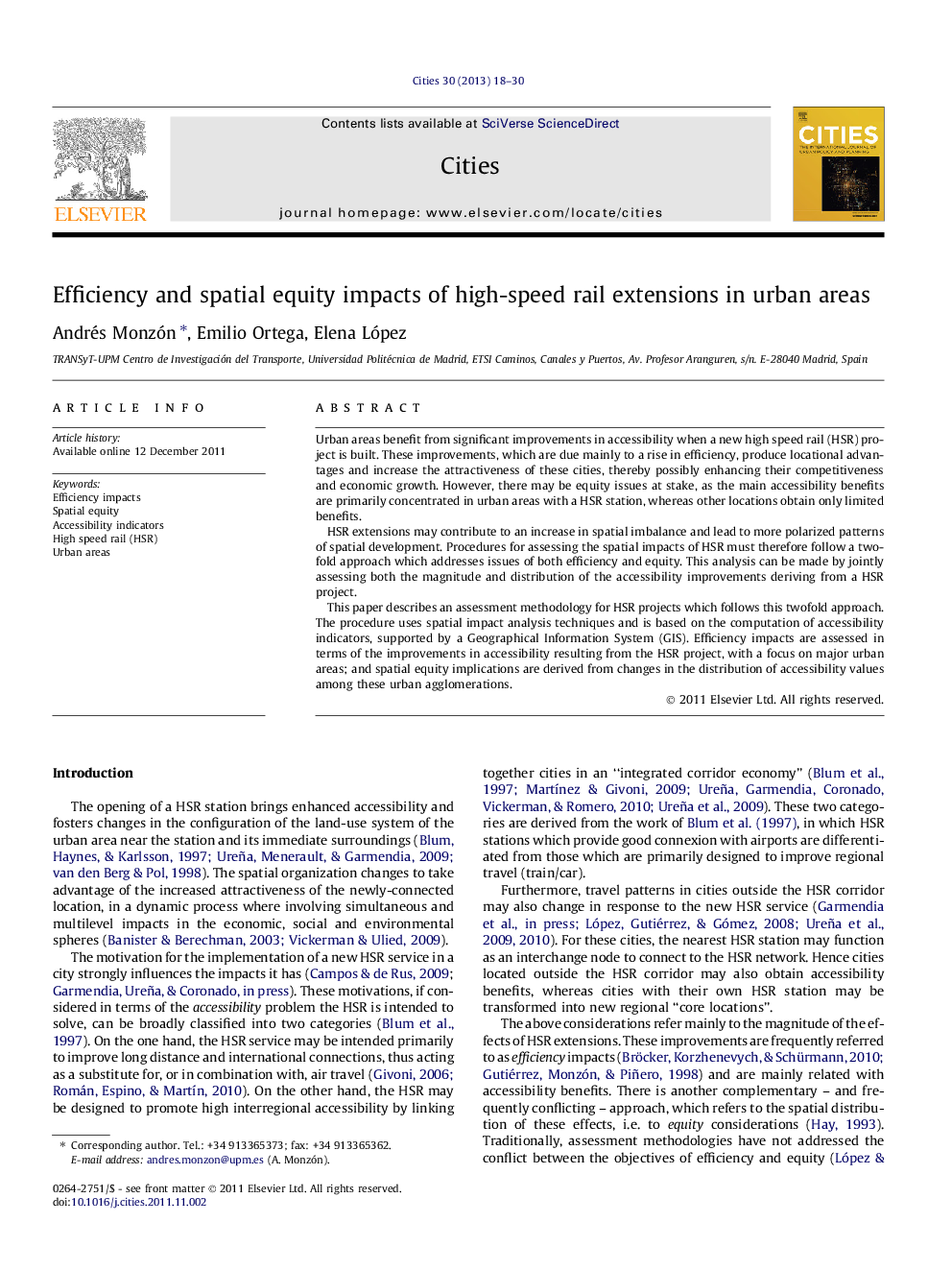| Article ID | Journal | Published Year | Pages | File Type |
|---|---|---|---|---|
| 1008574 | Cities | 2013 | 13 Pages |
Urban areas benefit from significant improvements in accessibility when a new high speed rail (HSR) project is built. These improvements, which are due mainly to a rise in efficiency, produce locational advantages and increase the attractiveness of these cities, thereby possibly enhancing their competitiveness and economic growth. However, there may be equity issues at stake, as the main accessibility benefits are primarily concentrated in urban areas with a HSR station, whereas other locations obtain only limited benefits.HSR extensions may contribute to an increase in spatial imbalance and lead to more polarized patterns of spatial development. Procedures for assessing the spatial impacts of HSR must therefore follow a twofold approach which addresses issues of both efficiency and equity. This analysis can be made by jointly assessing both the magnitude and distribution of the accessibility improvements deriving from a HSR project.This paper describes an assessment methodology for HSR projects which follows this twofold approach. The procedure uses spatial impact analysis techniques and is based on the computation of accessibility indicators, supported by a Geographical Information System (GIS). Efficiency impacts are assessed in terms of the improvements in accessibility resulting from the HSR project, with a focus on major urban areas; and spatial equity implications are derived from changes in the distribution of accessibility values among these urban agglomerations.
► We study the efficiency and spatial equity impacts of HSR in urban areas. ► Accessibility measures are capable of addressing efficiency and equity impacts of HSR extensions. ► HSR stations cause the existence of “islands” with enhanced levels of accessibility. ► The territorial homogeneously Spanish HSR extension causes a global rise in spatial equity.
